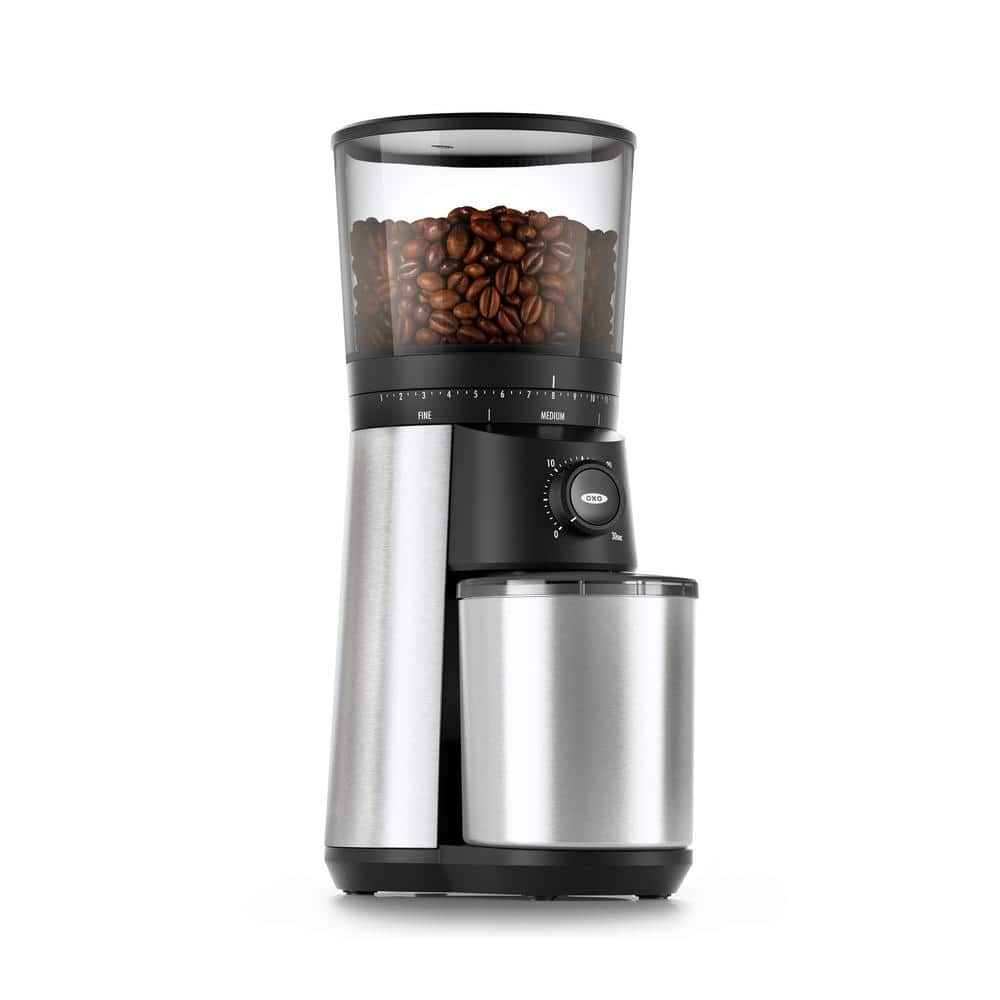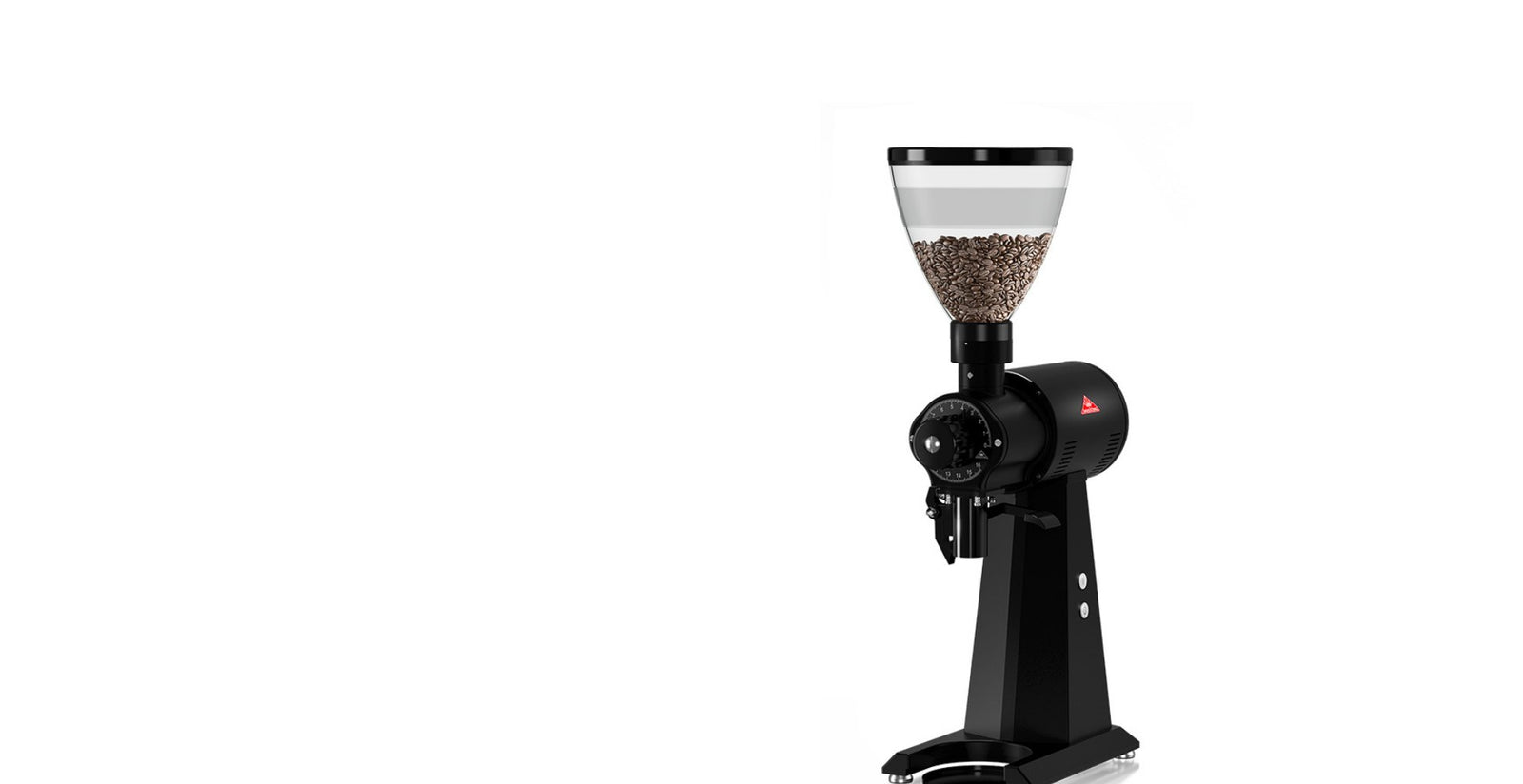How an Industrial Coffee Grinder Can Improve Your Brew Quality
How an Industrial Coffee Grinder Can Improve Your Brew Quality
Blog Article
Industrial Coffee Mill Guide: Boost Effectiveness and Quality
In the affordable landscape of coffee production, choosing the appropriate industrial coffee grinder plays a critical role in boosting both efficiency and item quality. Recognizing the nuances of numerous grinder kinds and key attributes-- such as customizable grind settings and robust construction-- can significantly influence the final flavor profile of the coffee. The optimization of the grinding procedure, combined with attentive maintenance, is important for sustaining efficiency over time. As we discover these essential components, it ends up being evident that the effects extend past plain tools choice, affecting general organization success in manner ins which necessitate closer examination.
Recognizing Mill Types
When picking an industrial coffee mill, comprehending the different types available is crucial for optimizing both taste removal and operational efficiency. Both main types of mills are blade mills and burr grinders. Blade grinders make use of sharp blades that chop coffee beans into inconsistent dimensions, bring about uneven extraction and potentially unwanted flavors. While blade mills are often a lot more economical and suitable for small procedures, they are usually not advised for industrial usage.

Inevitably, selecting the ideal kind of mill is essential to preserving high quality and effectiveness in coffee production, making it vital for companies to spend in high-quality burr mills for ideal outcomes.
Secret Functions to Consider
Selecting a commercial coffee mill calls for cautious factor to consider of a number of vital functions that can significantly affect both performance and the total coffee experience. One of the primary aspects to examine is the grinding mechanism. Burr grinders are generally preferred over blade grinders, as they provide a consistent work dimension, which is essential for ideal extraction and taste.
An additional important attribute is the mill's capability. A functional grinder with multiple settings enables you to tailor the work size to different brewing techniques, boosting the coffee's flavor profile.
Assess the grinder's sound level, specifically in a hectic café or manufacturing setting, where excessive sound can be disruptive. Investing in a mill that stabilizes these features can substantially improve both functional effectiveness and the quality of the coffee offered.
Optimizing Grinding Process
To attain the best results in coffee preparation, maximizing the grinding procedure is necessary. The grind dimension substantially influences extraction, taste, and total quality of the brewed coffee.


In addition, checking the grinding rate can maximize the procedure. Slower grinding usually generates much less warmth, this contact form preserving fragile tastes and fragrances. Alternatively, much faster grinding may create too much warmth, adversely affecting the coffee's top quality.
Upkeep and Treatment Tips
Appropriate maintenance and care recommended you read of industrial coffee grinders are necessary for ensuring optimum efficiency and durability. Regular cleaning is the structure of upkeep; residue buildup can influence taste and grinding efficiency. It is a good idea to clean up the grinder after each usage, cleaning down the exterior and removing any coffee premises from the burrs.
Furthermore, evaluate the grinding burrs for damage. Boring burrs can compromise work consistency, so they should be replaced as essential. Industrial Coffee Grinder. Periodically adjusting the grinder is likewise essential, as this maintains the preferred grind size for numerous developing techniques
Lubrication of moving components should be executed according to the maker's specs, as this reduces rubbing and extends the life of the tools. It is important to make use of food-grade lubes to ensure safety and compliance with wellness regulations.
Last but not least, keep the mill in a completely dry and steady environment to stop rust and deterioration. By adhering to these maintenance and treatment suggestions, drivers can boost the performance of their industrial coffee mills while ensuring high-quality outcome and prolonged operational life.
Return on Financial Investment Analysis
Assessing the return on financial investment (ROI) for commercial coffee grinders is crucial for companies seeking to enhance their coffee production capacities. An extensive ROI evaluation aids determine the financial practicality of buying high-quality grinders, allowing services to consider the preliminary prices versus possible gains.
To perform a comprehensive ROI analysis, companies must think about a number of crucial aspects. Assess the purchase rate of the mill, including installation and any type of essential modifications to existing facilities. Next off, compute functional expenses, consisting of i thought about this energy usage, maintenance expenses, and labor efficiency enhancements. High-performance mills frequently result in reduced grinding time and increased throughput, which can significantly boost performance.
In addition, take into consideration the effect on item high quality. Industrial Coffee Grinder. Superior grinders generate a more regular grind dimension, which can enhance flavor accounts and customer satisfaction, eventually driving sales. By increasing the top quality of the last product, organizations can validate greater pricing, bring about boosted revenue
Final Thought
In recap, an industrial coffee mill plays a critical duty in improving both performance and product high quality within coffee manufacturing. By choosing top notch burr mills furnished with essential functions such as flexible grind setups and resilient construction, companies can make sure optimal flavor removal. Routine upkeep is crucial for sustaining grinder performance and making best use of customer fulfillment. Eventually, the critical financial investment in a reputable mill contributes significantly to boosted revenue and competitiveness in the coffee market.
In the competitive landscape of coffee production, selecting the right commercial coffee mill plays an essential function in boosting both effectiveness and product quality. The 2 key types of mills are blade grinders and burr grinders. Within the burr mill classification, there are flat burr grinders and conelike burr mills, each with its benefits. Burr grinders are generally preferred over blade mills, as they give a consistent work size, which is important for optimal removal and taste.
In summary, a commercial coffee mill plays a crucial duty in boosting both efficiency and item top quality within coffee production.
Report this page